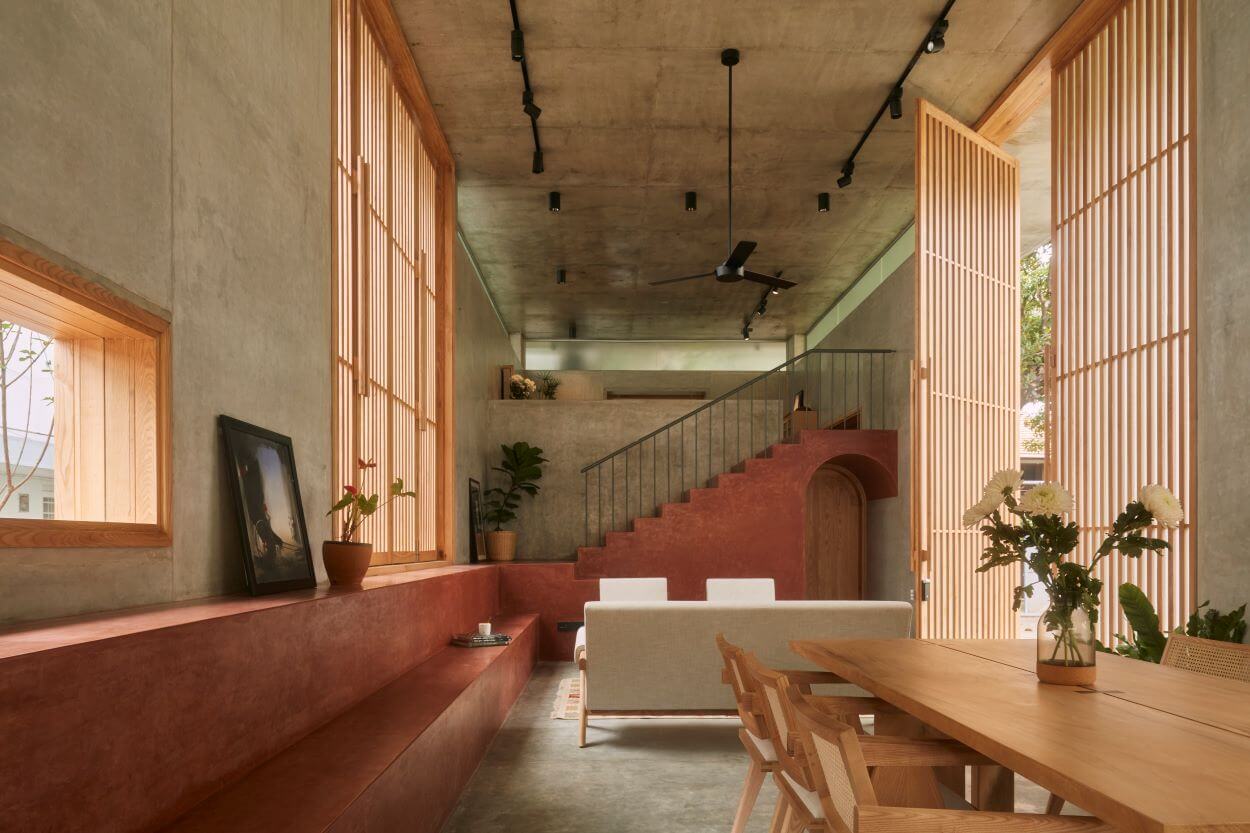Brief-
Inferences from the Cabin House. Through smart design and creative use of space, we can transform the way we live and interact with our growing cities; tackling urban overcrowding issues globally whilst improving the quality of life. Ever since the pandemic shook up our world, we’re trying to incorporate sustainability into every aspect of our life, including our homes! And, with everyone aspiring towards eco-friendly and mindful ways of living, tiny homes have completely taken over the world of architecture and cemented their place as sustainable, minimal, and economical micro-living setups.
Blog-
Redefining Preconceived Notions of Minimalism:
Despite preconceived notions that small homes might be contrived and inhospitable, their true potential lies in the realm of ingenious design. These intimate spaces, when designed strategically, foster clarity and unleash the full magnitude of every meticulously utilized square inch, skillfully orchestrating the symphony of limited space. Small homes embody an intentional and thoughtful approach that resonates harmoniously with the tenets of minimalism, unveiling an authentic deconstruction of our lives.
The Impact of Small Footprint:
Emerging from an innate desire to transcend the shackles of urbanisation, the Cabin House emerges as a veritable metamorphosis, reshaping our perception of dwelling spaces in the post-pandemic era. Nestled amidst the lush embrace of South Bangalore‘s verdant splendor, this weekend retreat, a one-bedroom haven for a family of three, exudes a quiet contemplation of modern living infused with vernacular nuances.
The design ethos interweaves elements reminiscent of traditional vernacular homes with a contemporary minimalist lexicon, forging a remarkable tapestry of conversation-friendly spaces. Every architectural element dances in harmony, imbuing the main staircase with a dual purpose—a conduit for vertical movement and a whimsical stage for informal seating nooks, akin to the playful charm of a traditional ‘katte.’ Anchored in simplicity, the Cabin House effortlessly embodies the essence of local aesthetics and humble forms.
The Rise of Sustainable and Mindful Living:
In the wake of the pandemic, our collective consciousness has shifted towards sustainability, permeating every aspect of our existence, including the abodes we call home. A deep yearning for eco-friendly and mindful living has ignited a global passion for tiny homes, solidifying their position as sustainable, minimalistic, and economical micro-living paradigms. Therefore, small homes herald a sustainable way of life, carefully curated to embrace eco-friendly practices.
User-centric Design:
Adaptable and multifunctional furnishings stand as testaments to space optimization and overcoming spatial constraints. Hence, considering a diverse range of users in our commitment to design holistically, ensures that these space-saving strategies are in fact, community-centric, and can cater to the diverse needs of individuals whenever necessary.
The Way Forward/Transformative Living:
Small homes invite us to embrace a new way of living, one that focuses on experiences over possessions, by prioritizing intentional design and mindful existence. They present an innovative response to the challenges of urban overcrowding, simultaneously improving our quality of life. Such transformative solutions, born out of the need for smart design and efficient use of space, hold the key to revolutionizing our lives and reshaping the way we interact with our growing cities.
Small homes serve as an inspiration for architects and designers to think and design responsibly – that considers the present and the future, pushing us to redefine our relationship with our living spaces and create harmonious environments that optimize functionality, aesthetics, and sustainability.

